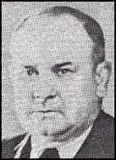Juan Peiro

Juan Peiro was born in Catalonia in 1887. He became a steel worker in Barcelona and developed syndicalist views. In 1924 he became secretary of the National Confederation of Trabajo (CNT). Peiro argued that collaboration with the government was more effective than terrorism in achieving social reforms.
By 1930 Peiro was a strong opponent of militant anarchism. This upset the Federación Anarquista Ibérica (FAI) and they managed to get him ousted as editor of the Solidaridad Obrero, the major newspaper of the CNT.
Between 1934 and 1936 Peiro organized strikes in Catalonia and Asturias. A supporter of the Popular Front government, Piero was appointed by Francisco Largo Caballero as minister of industry in November 1936. In this post he advocated the collectivization of industry and agriculture. He also promoted the idea of workers' banks.
In May 1937 he ordered the collectivization of all mines. However, the decree was not implemented by the new Communist dominated government led by Juan Negrin.
At the end off the Spanish Civil War Peiro fled to France. After the invasion of the German Army he was captured and sent back to Franco's Spain.
Juan Peiro was executed in 1942.
Primary Sources
(1) Juan Peiro became concerned about about the use of violence during the Spanish Civil War (30th July 1937)
Some people have killed for the sheer sake of killing, because they could kill with impunity. Many who have been killed were shot because of personal vengeance. A people in rebellion have been infiltrated by amoral elements who rob and murder by profession. Many of those who carry out expropriations have had no other interest than to seize other people's money and goods for themselves.

